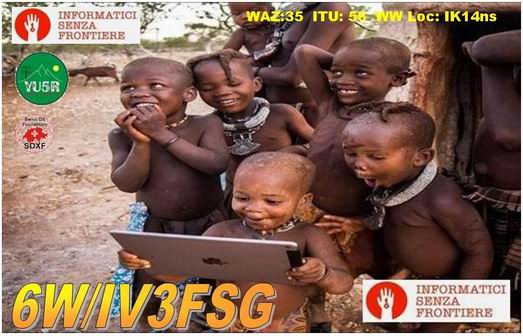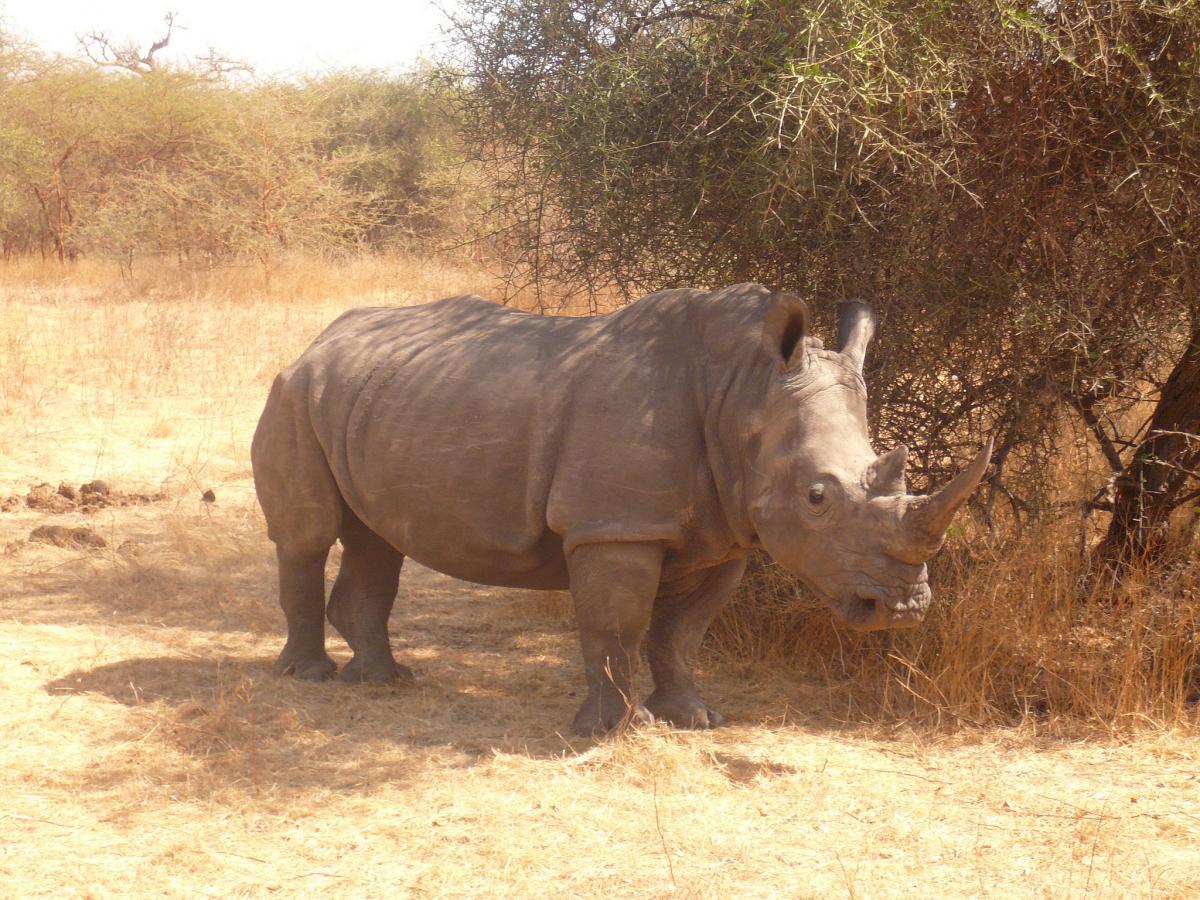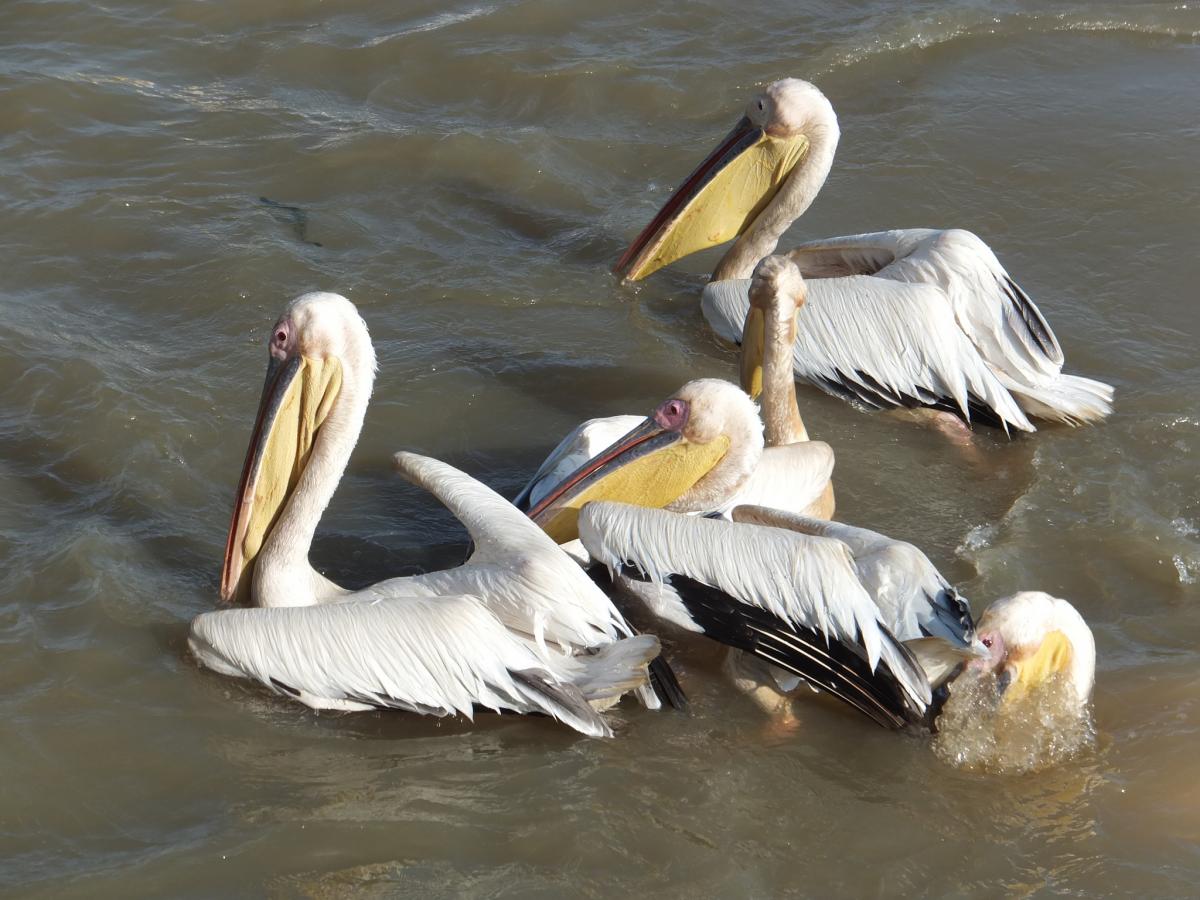Elvira, IV3FSG will be active as 6W/IV3FSG, from Dakar, Senegal, 26 September - 16 October 2023.
She will operate on HF Bands, CW, FT8.
Recent DX Spots 6W/IV3FSG
6W/IV3FSG Log search QSL via IK2DUW.
Ads for direct QSL:
ANTONELLO PASSARELLA, VIA M. GIOIA, 6, 20812 LIMBIATE, MB, Italy.
6W/IV3FSG Senegal News 23 September 2023
Elvira, 6W/IV3FSG start activity from Senegal.
Senegal
The kingdom of eternal summer, very fine sand in the colour of winter on the west coast washed by the Atlantic Ocean, quiet mangrove forests, waterfalls, palm trees, baobabs and unique customs of the local population. All this is Senegal, an African country that can be talked about endlessly, from describing the wonders of nature to the people and capital of Senegal.

6W/IV3FSG. Senegal. QSL.
When caution triumphed over tradition
The name of the Senegalese capital evokes only one association: when you hear the word "Dakar", you instantly think of Paris-Dakar.
For many years the most prestigious rally-raid of world significance finishes here, in Dakar, and thousands of participants, as well as spectators, brought by the soda wind of wanderings, remember with delight the exciting moments of the competition.
But eight years ago, when the thirtieth anniversary race in the sands of Africa was to be held, the competition was suddenly cancelled. The reason for this was the French government's advice to its citizens not to visit Senegal's neighbouring Mauritania, where most of the competition takes place and where four French tourists were killed a week before it began.
Losses due to the cancellation of the rally-raid amounted to more than fifty million dollars, but perhaps caution in this case was justified, because human life is much more expensive.
Of course, the racers are extreme sportsmen and would have travelled the route even under the threat of machine gun fire, taking it as a part of the rally, but sporting ambitions are much lower than safety for life.
The race did take place that time, but it was moved to Argentina and Chile. Now everything is back to normal, the route ends again in Dakar, at a lake with unique features. On its shore, in the area of campsites, after the end of the competition you can find a lot of abandoned cars, which athletes consider inexpedient to take back to Europe. But the uniqueness of the lake is not in the orphaned cars at all.
 Senegal. Author - Nichole VanLoo.
Senegal. Author - Nichole VanLoo.
"Girl's" Lake
It is difficult to understand where the origin of the custom of dressing little girls in pink-coloured clothes lies, but for some reason it is the custom, and looking at the Pink Lake, which was discussed above, one would like to call it a "girl's lake".
Such a colour the lake has thanks to the microorganisms living in it. Interesting is that the shade of water can vary - from bright tones of pink colour to dark purple. It all depends on the time of year, air temperature and simply on the weather. Microorganisms instinctively sense the smallest temperature fluctuations in the atmosphere and, depending on them, either sink to the bottom of the lake or rise to its surface.
Even on souvenir postcards and photographs of the lake taken by travellers to Senegal, you can hardly see the unchanging colour of its water. The lake is like the sky: it is never the same.
 Senegal. Author - Bruce Ichikawa.
Senegal. Author - Bruce Ichikawa.
Senegalese people, mind-blowing traditions and local rules of good manners
The inhabitants of Senegal are beautiful people. And if we talk about Senegalese representatives of the weaker sex, they are generally considered the most beautiful on the entire African continent. For the most part, they are very slim, even thin girls and women with refined facial features, close to European. Combined with dark skin, beautiful hair and a snow-white smile - it's something!
Children in Senegal are extremely sociable, especially if you give them sweets, even just lollipops. They emotionally greet everyone who passes on the road of their town or village and, most importantly, notice cars from afar. Apparently, children's eyes have not lost their natural sharpness, thanks to the fact that in the shacks where they live with their parents, brothers and sisters, there are simply no computers, televisions or other miserable creatures of civilisation. Children play with car tyres, everything around them is natural, fresh, green, vitamins fall from trees under their feet and their life is beautiful. The children do not yet understand what wealth is, and therefore this state of affairs is completely satisfactory for these beautiful, unspoilt by mammon, little Senegalese.
The inhabitants of this African country have interesting rules of communication. When you meet them, you must say hello to them, showing maximum benevolence, ask how they are doing and present a modest gift. Senegalese people greet each other as many times as they meet during the day. If they saw each other a minute before, that's no problem either. A greeting will still follow. This may not be a bad thing, but someone who is in Senegal for the first time needs to have a strong nervous system.
There are churches in Senegal whose unusual shape resembles a dropped Vietnamese wicker hat, with one difference - there is a cross on top of this wicker cone. When entering a church to pray, one must remove his or her shoes. And if the person praying is in front of you, you must not go round to the front.
At the same time you can observe "sacred" places: the island of fetishists with a strange tree under which an old fetish sits and where any problems are solved, including, for example, the chicken's illness. Or Vendae Island with a huge tree lined with nibbled chicken bones. It turns out that there is an annual festival where the locals feast and dance, eating chickens that were stolen one by one from each family's household and hanging the bones of the poor poultry on the tree for some reason.
And also locals respect baobabs, which are colossally numerous here. It is even forbidden to climb the baobabs without special permission from the local authorities. The largest baobab in Senegal is almost 30 metres in circumference and it is eight hundred years old!
And, in general, there is so much to see here that you just have to visit it!

